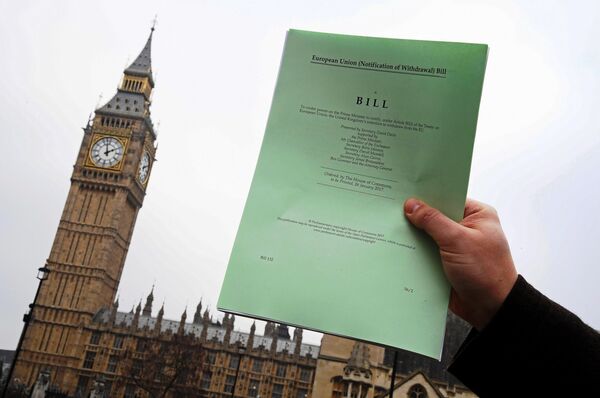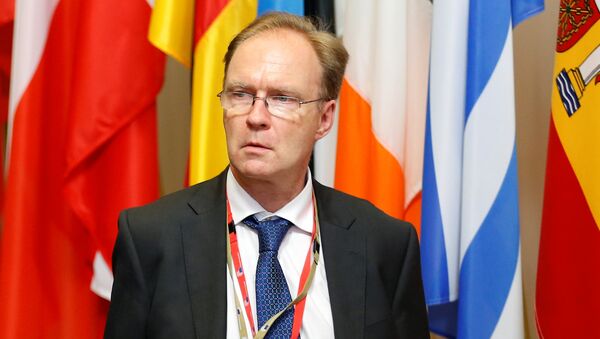Giving evidence to the European Scrutiny Committee at the UK House of Commons, February 1, he denied ever having said — on or off the record — that Brexit would take ten years, but admitted that the negotiations would be "on a humongous scale" and that they "usually end up in a 'fist fight.' "
"My summary of the senior beltway wisdom from the people I talked to on a daily basis was that a combination of a negotiation over the free trade agreement and the ratification of all the member state parliaments and some regional parliaments would probably take until the early-mid-2020s for ratification.
"I never used [the phrase] 'ten years.' What I did — which I think is what ambassadors are partly there for — is to report what I was getting from the most senior voices around Brussels, both at commissioner level, senior official level, inside all the institutions and from key opposite numbers in the member states," he said.
#IvanRogers is currently on @BBCParliament explaining & answering technical questions about #EU negotiations and operations #Remain #YesEU pic.twitter.com/875HvQOLmb
— EU IN BRUM (@euinbrum) 1 February 2017
He quit his post as Britain's top diplomat in the EU saying, in a leaving letter to staff: "We do not yet know what the government will set as negotiating objectives for the UK's relationship with the EU after exit. Serious multilateral negotiating experience is in short supply in Whitehall, and that is not the case in the Commission or in the Council.
"I hope you will continue to challenge ill-founded arguments and muddled thinking and that you will never be afraid to speak the truth to those in power," Rogers wrote.
Tough Talking
It was widely reported that his comments reflected a belief that the UK was nowhere near ready to begin negotiating Britain's way out of the EU — and all of its institutions and agencies — and renegotiate a new relationship. He made clear the Brexit talks would be tough.

"It's a negotiation on a scale that we haven't experienced since the Second World War. This is going to be on a humongous scale. We're going to have enormous amounts of business running up various different channels involving difficult tradeoffs for Her Majesty's Government and difficult trade-offs for the other 27 on the other side of the table.
"That involves generating momentum and an atmosphere. Even when you get into name-calling and an extremely feisty atmosphere — and we undoubtedly will in both exit negotiations and future trade and economic negotiations — there is still an appetite to proceed and finalize agreements. Trade negotiations always start with people making pious and pro-free-trading comments on both sides of the table, but usually end up in a 'fist fight' but the most of them resolves themselves and end up with trade deals," he told the committee.




